The Housekeeper and the CEO: Why Some Men Struggle to Respect Powerful Women
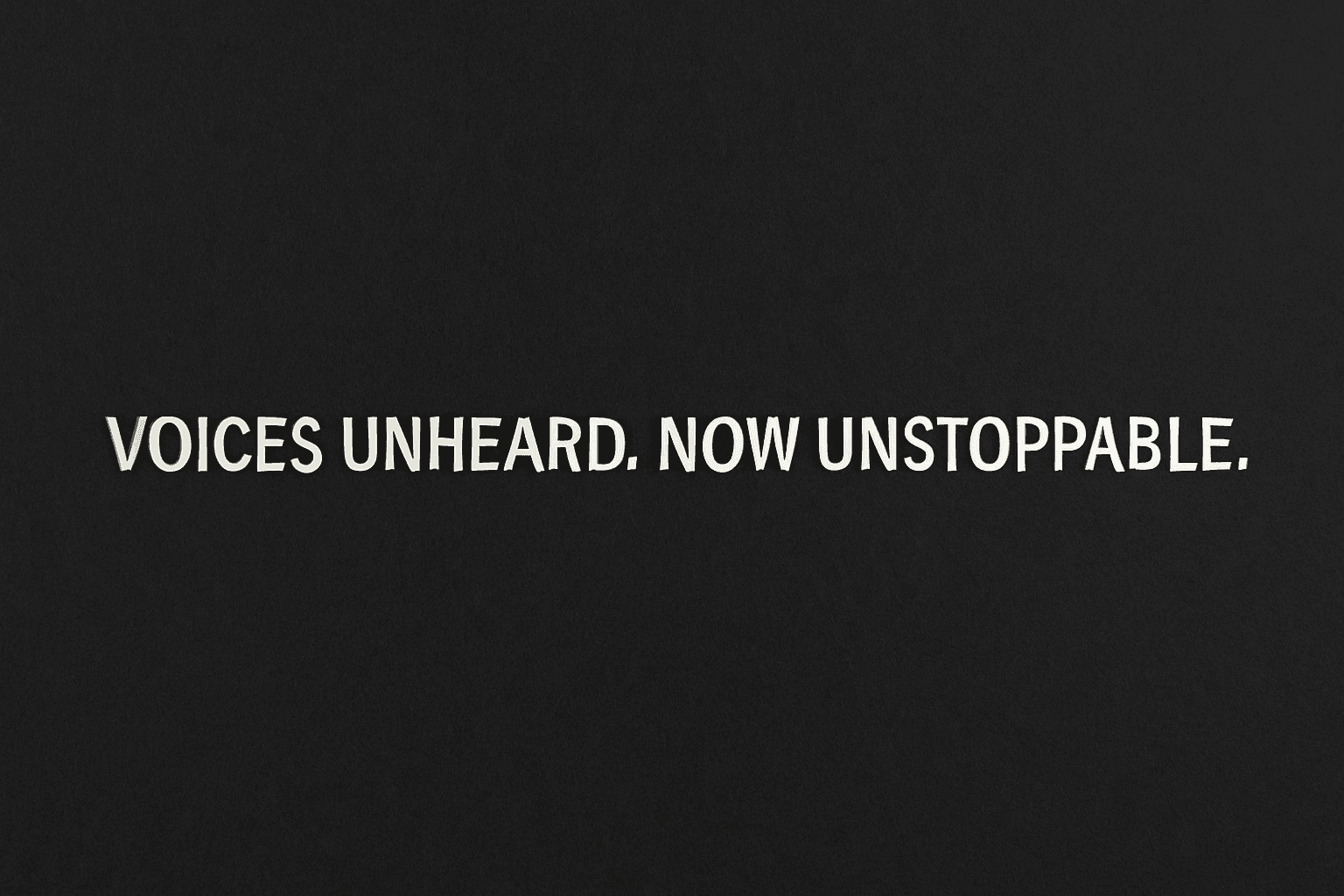
A Question That Won’t Go Away
“Why is it that even when a woman is more powerful, more intelligent, or more successful than a man, he still treats her like she exists for his pleasure?”
That question, posed to me by a client, refuses to fade. It echoes in the stories of women across every sector and social class. It reverberates through the headlines about powerful men like P. Diddy, Jeffrey Epstein, and Harvey Weinstein. And it resonates deeply in the themes of my novel Sun on Your Back, where power dynamics and silence enable abuse to pass from generation to generation.
This article explores a question we can no longer afford to ignore: Why does success still fail to shield women from disrespect, harassment, or violence? And more urgently, what does this tell us about the perception of women in even the most “developed” corners of society?
1) Power in Women Is Still Perceived as a Threat
Men are conditioned to view other men’s power as something to respect or challenge. But female power? That’s often viewed as something to control, diminish, or discredit.
When a woman climbs high in business, politics, or culture, it does not automatically command male respect. Instead, it can trigger a defensive reflex—an urge to “cut her down to size.” One way that happens is through objectification: reducing her from an executive to a body, a mind to a potential conquest.
This is not desire. It’s discomfort with disrupted hierarchy. The term ‘disrupted hierarchy’ alludes to the traditional order being disturbed or overturned, permanently or temporarily. The disruption in this case is the order of the traditional patriarchal hierarchy, that men are better suited for leadership roles.
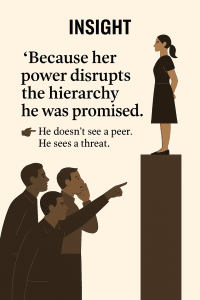
2) Respect Is Gendered: Men Earn It, Women Negotiate for It
In patriarchal societies, male status often comes with built-in respect. But women, even at the peak of their careers, are frequently required to prove they deserve to be treated seriously—and even then, they may still be sexualized, diminished, or dismissed.
A male CEO is a “boss.” A female CEO is often a “bossy woman.”
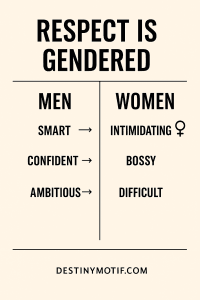
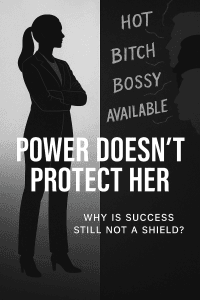
That is why many accomplished women report being flirted with, belittled, or propositioned by men of lower status who would never dream of speaking to a male superior that way. These encounters reveal a deeper belief: a woman’s body is always up for consideration, regardless of her mind or title.
3) The Housekeeper and the CEO: When Men Feel Safer With the “Dependent” Woman
Why do some men cheat on powerful women with those who are less powerful—a housekeeper, a subordinate, a fan? It’s not about attraction. It’s about restoring power.
With a partner who earns more, shines brighter, or holds more authority, a man may feel diminished. Instead of confronting those feelings, some seek out dynamics where they feel in control. The affair, then, becomes not about love or lust, but about reclaiming dominance.
This dynamic is a clear reminder that power imbalances shape even the most intimate relationships. And when left unchecked, they can fuel abuse.
4) Sun on Your Back: The Intergenerational Cost of Male Entitlement
In Sun on Your Back, I tell the story of Diara, a woman navigating the legacy of silence and violence in her family. Her mother, a quiet woman crushed by the weight of social expectation, protects a husband who harms their children. His entitlement is never questioned. Her silence is punished.

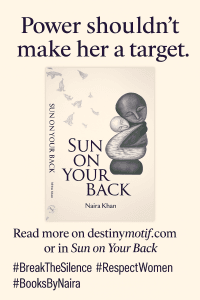
This is how patriarchy perpetuates itself: not through isolated incidents, but through generational scripts about who matters, who obeys, and who gets to cause harm without c
Consequence. Children learn early that dominance is male, and submission is female.
5) Why “Consent” and “Respect” Must Be Taught Together
Consent education often focuses on “no means no” or legal thresholds. But what about respect?
A man who sees a woman’s success as irrelevant to her worth as a human is far more likely to cross boundaries. A man who sees a woman as inherently equal—regardless of her clothes, role, or status—is less likely to assume her body is available for his gratification.
Until boys are taught that respect is not conditional, we will continue to raise men who view women’s advancement as neither a threat nor a joke.
6) From P. Diddy to Weinstein: Power as a Cover for Abuse
We’ve seen it over and over. P. Diddy. Epstein. Weinstein. Men who used fame and money to silence, manipulate, and exploit. But the real horror is that their behaviour wasn’t a secret. It was normalized, joked about, enabled. They were protected because they embodied a type of power that patriarchal culture rewards.
Their victims were disbelieved or blamed—”she wanted fame,” “she knew what she was doing,” “why is she complaining now?” These dismissals ignore one key truth: these women and girls were dehumanized long before the first assault.
Conclusion: If We Don’t Change Perception, Policy Won’t Save Us
Gender-based violence does not begin with rape. It begins with the idea that a woman, no matter her accomplishments, is available. That her body can be commented on, touched, dismissed, or shamed.
We have changed laws. We have launched movements. But until we rewrite the perception that sees women as secondary, inferior, or ornamental, even the most powerful women will remain at risk.
The future demands more than change. It demands redefinition.
Related Works by the Author:
- Sun on Your Back – A novel on generational trauma, silence, and survival
- Blog Series: Predator and Prey — Diddy, Epstein, Weinstein, and the Culture That Enables Them-https://medium.com/@naira.khan0807/predators-and-prey-a-tale-of-power-and-vulnerability-3585b9e2ec10
#PowerAndPerception #RespectWomen #FeministVoices #GenderJustice #SunOnYourBack #ConsentAndRespect #PatriarchyInPlainSight #BreakTheSilence #EndGenderViolence
Naira Khan is a novelist, psychologist, and lifelong advocate for women and children. Through her stories, she gives voice to the silenced and sheds light on injustice, resilience, and healing.